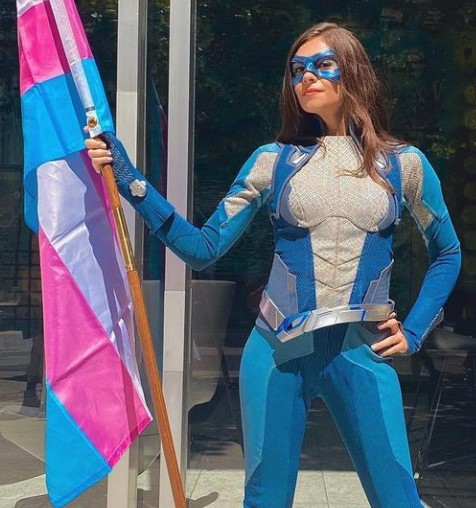Time for yet another essay on Transgender Marxism
This essay marks the halfway point!
The PDF is here - https://transreads.org/wp-content/uploads/2021/07/2021-07-15_60f0b3d5edcb7_jules-joanne-gleeson-transgender-marxism-1.pdf
The Intro Discussion with links to all previous essay discussions is here - https://lemmygrad.ml/post/395378
If you’re unsure what this post is: I’m leading a discussion group in real life on Intersectional Marxist Transfeminism, and I thought some of my comrades on the Internet may be interested in reading this essay collection as well.
This will be my initial read-through and note-taking. I hope to spark a discussion, or at least for us to learn something new together. So feel free to add comments and ask questions <3
Today’s essay is Queer Workerism Against Work: Strategising Transgender Labourers, Social Reproduction & Class Formation by Kate Doyle Griffiths.
Kate Doyle Griffiths is an anthropologist at City University of New York’s Graduate Center, a lecturer at Brooklyn College, and co-chair Red Bloom in New York City. Kate is an editor of Spectre. They are an ethnographer who writes about Southern Africa and the USA, workers, strikes, health and medicine, gender, Queers, race, class, Marxism and what is to be done.
Edit: the discussion continues with the next essay, by Farah Thompson, here - https://lemmygrad.ml/post/417377


“This transgender workerism will allow us to think through a left strategy with a practical shot of achieving utopia.”
Are you serious? A practical shot of achieving utopia???
This is ridiculous idealism.
And somehow that utopia is meant to be achieved through labour organising and electoralism? There’s not even a hint of a mention of anti-capitalism through revolution
“A wave of rail and port blockades in Canada, by and in solidarity with the Wet’suwet’en people (and echoing the Dakota Access Pipeline struggle) have demonstrated potential for white and indigenous workers as effective comrades”
I wish more white people effectively allied with Wet’suwet’en land defenders.
“In the present and historically, trans/queer people have also tended to find themselves grouped into key nodes of distribution and logistics networks”
This is a really white-centric viewpoint. 44% of Black trans women in the US are sex workers. A few anecdotes about queer people working as long haul truckers is not really the same as queer people “tend[ing]” to those jobs. This whole essay is rife with unconfirmed claims and extrapolations based on anecdotal evidence and supposition.
Queer people exist in every job, but that doesn’t equate to statistical tendencies for queer people to be in those jobs.
“Several accounts detail the lives and experiences of trans/queer workers in production and logistics, but few offer any systematic quantitative accounting of our presence”
If there’s no systematic quantitative accounting of queer people in these jobs, then why are you saying that they tend to be in these jobs???
“We have been drawn to radical organisation in disproportionate numbers – even where these organisations have been formally and practically hostile to queer and trans people.”
This brings to mind our previous discussion about STAR, which publicly supported Angela Davis despite the Communist Party’s dismissal of their support.
Okay, so basically so far Griffith’s “explaining the role [they] think trans and queer workers play” is just that they sometimes have jobs in logistics and social reproduction and should strike alongside the cis het people who have those jobs too.
“Concrete investigations of how queers navigate the everyday demands of exploitation must come to replace us serving as quaint representatives of the expansive tolerance, or emblems of social radicalism, of the left (contra wider society). The left is not only unusually ‘tolerant’ of queers and trans people: it also consists of us.”
“Queers have historically played an important role in politicising health care access as a question of class politics. Securing relevant treatment has required us to make political and organisational linkages between patients, providers, and researchers. Queer and trans people have rarely been able to expect humane and expert treatment as a given. Instead, we have secured it only through organising to advance research agendas, and test protocols. These are often formulated by working-class people through our lived experience, and autodidactic expertise.”
“queer and trans people represent an obstacle to the imagined negotiation with the ruling class for the adoption of this reform. (The same well may be true of disabled people or immigrants and other overlapping categories of people whose needs can be seen as particular or identity-based.) From this view, we appear as an extra expense, or a distracting ‘culture wars’ set piece that disrupts and divides simpler struggles.”
“well may be true” I guess Griffiths never bothered to talk to or read any disability activists